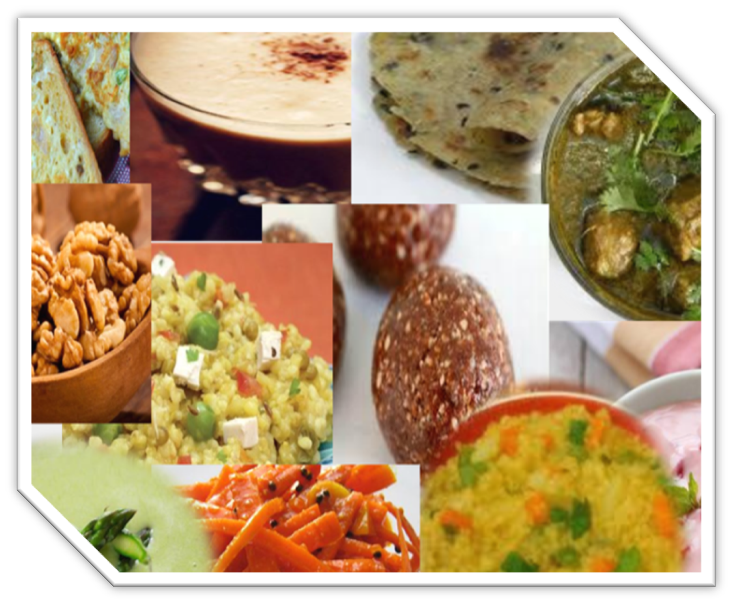How This Helps
Are you expecting a baby, well, note that diet during pregnancy is most important for the growth of your unborn baby? Therefore, the objective of this pregnancy diet is to provide the nutrients needed to maintain the mother’s health, support the physiological changes in her body and supply for the rapid growth and development of her baby. Proper care should be taken to prevent any deficiency or excess of nutrients too.
Science and Research
Key pregnancy nutrition considerations:
A pregnant woman needs more calcium, folic acid, protein, and iron than a woman who’s not expecting, according to the American College of Obstetricians and Gynecologists (ACOG). This is why these four nutrients are significant.
Folic acid:
Also called folate once the nutrient is found in foods, folic acid is a B vitamin that’s critical in helping to prevent birth defects in the infant’s brain and spinal cord, called neural tube defects.
It might be tough to get the recommended amount of folic acid from diet alone. Because of this the March of Dimes, an organization devoted to preventing birth defects, recommends that women that are attempting to have a baby take a daily vitamin supplement containing 400 micrograms of folic acid each day for at least one month before getting pregnant.
Food sources: fortified or enriched cereals, leafy green vegetables, breads and pastas, beans, citrus fruits.
Protein:
More protein is necessary during pregnancy, but the majority of women do not have problems getting enough protein-rich foods in their diets. Protein is a builder nutritional supplement because it can help to develop important organs for the infant, like the heart and brain. Food sources: meat, fish, poultry, dried beans and peas, eggs, nuts, tofu.
Iron:
Pregnant women need 27 mg of iron per day, which is double the amount required by women that aren’t expecting, according to ACOG. Additional amounts of this mineral are necessary to make more blood to supply the baby with oxygen. Getting too little iron during pregnancy may result in anemia, a condition leading to fatigue and an increased risk of infections.
To improve the absorption of iron, include a great source of vitamin C at the same meal when eating iron-rich foods, ACOG recommends. Food sources: meat, fish, poultry, dried beans and legumes, iron-fortified cereal.
Calcium:
This vitamin is used to construct a baby’s teeth and bones. If a pregnant woman doesn’t consume enough calcium, the nutrient will be drawn from the mother’s stores in her bones and given to the infant to fulfill up the extra demands of pregnancy.
Pregnant women over 19 years need 1,000 mg of calcium per day; pregnant adolescents, ages 14 to 18, need 1,300 mg daily. Food sources: cheese, calcium-fortified juices and foods, salmon or sardines with bones, some leafy greens (kale, bok choy).
See: Calculate Your Pregnancy By Months, Weeks and Trimester
Pregnancy Nutritients & Minerals
Energy: During the first trimester the additional energy required is small, primarily because of no substantial growth in the fetus; hence the RDA is not increased. Additional energy is recommended for the 2nd and 3rd trimesters only. An addition of approx. 300kcal is required for the normal intake. If the mother is underweight then the requirement may be much higher
Proteins: Ideally, a normal weight expectant mother should have around 15g more proteins than her normal intake. This protein requirement can be met from a balanced diet. Meeting the extra protein requirement particularly in the third trimester would require the consumption of high/good quality protein derived from milk, fish, meat, poultry, and eggs. However, for vegetarians, all amino acids to be supplied by combining grains and pulses, a vegetarian source of protein with a non-vegetarian dairy source or by having nuts.
Micronutrients: Some micronutrients are specially required in extra amounts during pregnancy.
Folic Acid: It is taken throughout the pregnancy, it prevents congenital defects and helps in increasing birth weight too.
Iron: is needed for the synthesis of hemoglobin in both maternal and fetal red blood cells.
Iodine: the maternal diet must consist of enough iodine so as to ensure the proper mental health of the growing fetus and infant.
Calcium and vitamin D: involved in the growth and development of bone and connective tissue and the synthesis of new cells are needed in greater amounts.
See: DIY Bleach Pregnancy Test Accuracy & Risks
Points to Note:
– Divide food into small frequent meals to prevent nausea and vomiting.
– Heartburns are commonly reported during later pregnancy. This is an effect of an enlarged uterus on the stomach. It can be avoided by drinking fluids in between meals and sitting upright for at least 3 hours before lying down.
Common problems during pregnancy:
– More fiber should be included in the diet to prevent constipation which is again a
– Plenty of water should be taken for a regular bowel movement.
– Activities like antenatal Yoga, walking, deep breathing should be encouraged during this time
– Alcohol and Smoking should be totally avoided
Pregnancy diet & meal plan sample
A sample pregnancy diet would suit a pregnant woman who is in her 2nd trimester and has no complications. It contains 1930kcal and 80 g proteins.52% of calories come from carbohydrate sources whereas proteins and fats both provide approximately 25% of calories each. I have kept a note of micronutrients and prepared recipes that are good sources of iron, calcium, and Folic acid.
See: Keto Diet For Women to Lose Weight
Breakfast
Egg Toast
Egg, Bread, Milk, Indian spices







